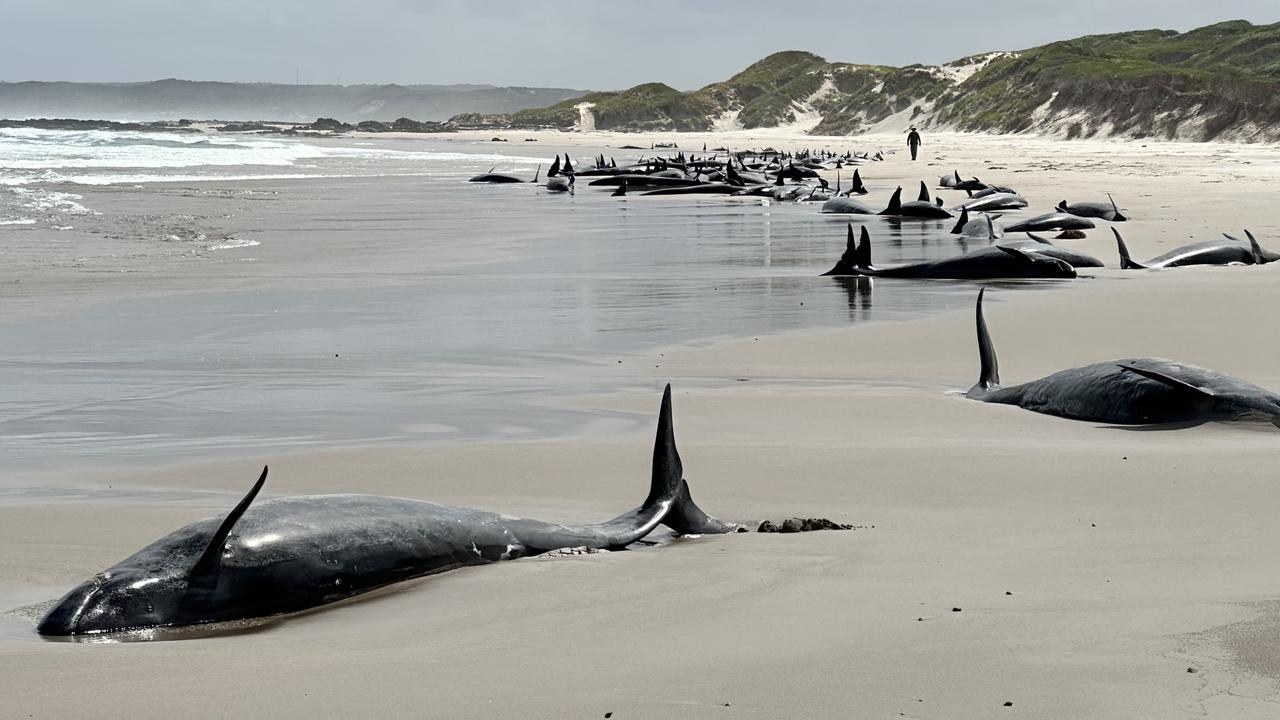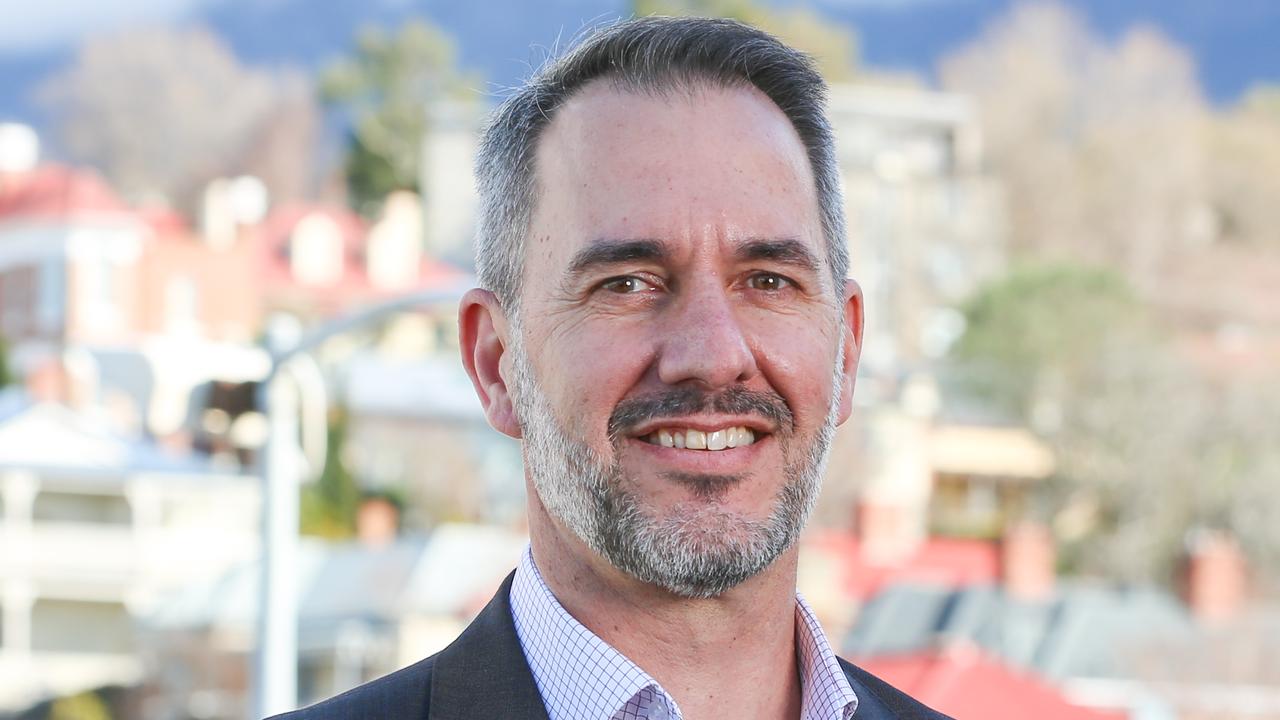Anti-fish farming group NOFF slams Huon Aquaculture over antibiotics treatment on salmon
A conservation group has slammed Huon Aquaculture’s recent use of antibiotics on salmon in the D’Entrecasteaux Channel, accusing the company of falling short of international standards.
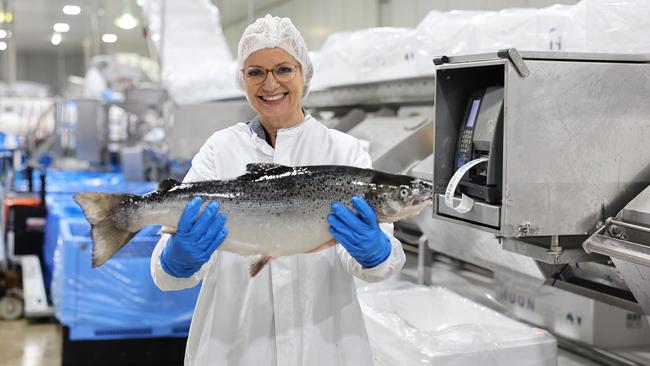
Tasmania
Don't miss out on the headlines from Tasmania. Followed categories will be added to My News.
A conservation group opposed to Tasmania’s salmon farming industry has slammed Huon Aquaculture’s latest use of antibiotics on fish in the D’Entrecasteaux Channel, describing the practice as “unacceptable” and accusing the company of falling short of contemporary international standards.
As Huon announced it was notifying local fishers of an antibiotic treatment undertaken at its Zuidpool lease near Bruny Island, Neighbours of Fish Farming (NOFF) spokesperson Jessica Coughlan said the company had placed the health of the wider Tasmania marine environment at risk.
“Just last year antibiotics were found in wild fish near salmon farms at levels nearly five times the allowable limit under Australian law,” Ms Coughlan said.
“Given that the Channel is such a popular recreational fishing area, the administration of antibiotics into the marine environment is not acceptable.
“How many tonnes of antibiotics are being used directly in the marine environment, and how many pens are being treated?”
In a media statement released on Wednesday, Huon said the treatment had come after expert veterinarian advice, and represented just the third time in a decade the company had used antibiotics on its salmon stock.
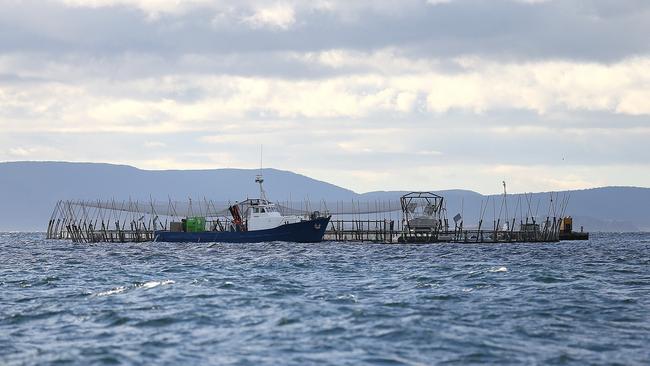
Huon said although the company had a comprehensive vaccination program which ensured all salmon were appropriately treated before being transferred from land-based farming facilities to leases, the fish currently being treated with antibiotics were already at sea when the most recent vaccine became available.
Huon general manager Depha Miedecke, said by proactive informing the public of its antibiotic use, it was setting a voluntary standard for the state’s salmon farming industry on real-time notification.
“As farmers, the health of our fish is our top priority,” Ms Miedecke said.
“Just like humans, pets and other farm animals, fish occasionally require medication.
“We are proud of the way we farm our salmon at Huon and remain fully committed to ongoing innovation, sustainability, and the health of both our fish and the environment.
“Huon’s world-leading land-based farming facilities mean our fish spend less time at sea, which significantly reduces the risk of these events.”
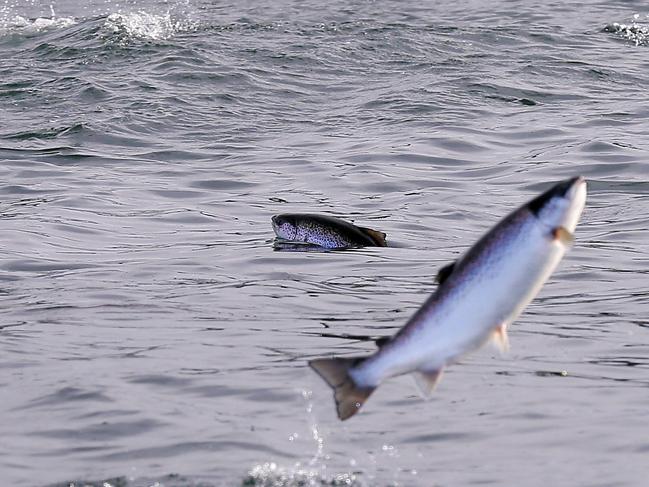
Huon said the medicines had been delivered in accordance with Environmental Protection Agency requirements, and would involve comprehensive independent monitoring of wild fish and the surrounding environment.
While the company insisted its product remained safe to eat, with mandated time frames between the treatment and harvesting of fish, Ms Coughlan said the risks antibiotics posed to public health were unacceptably high.
“Will there be signposting at all boat ramps and fishing spots within swimming distance of wildfish from the lease,” Ms Coughlan asked.
“And how soon can Huon do that, because people will be out fishing today.
“Antibiotic resistance has been declared by the World Health Organisation to be one of the top 10 killers by 2050.”
Founded in 1986, Huon was sold by Tasmania’s Bender family to Brazil-based meat processing giant JBS for $425m in 2021.
More Coverage
Originally published as Anti-fish farming group NOFF slams Huon Aquaculture over antibiotics treatment on salmon




